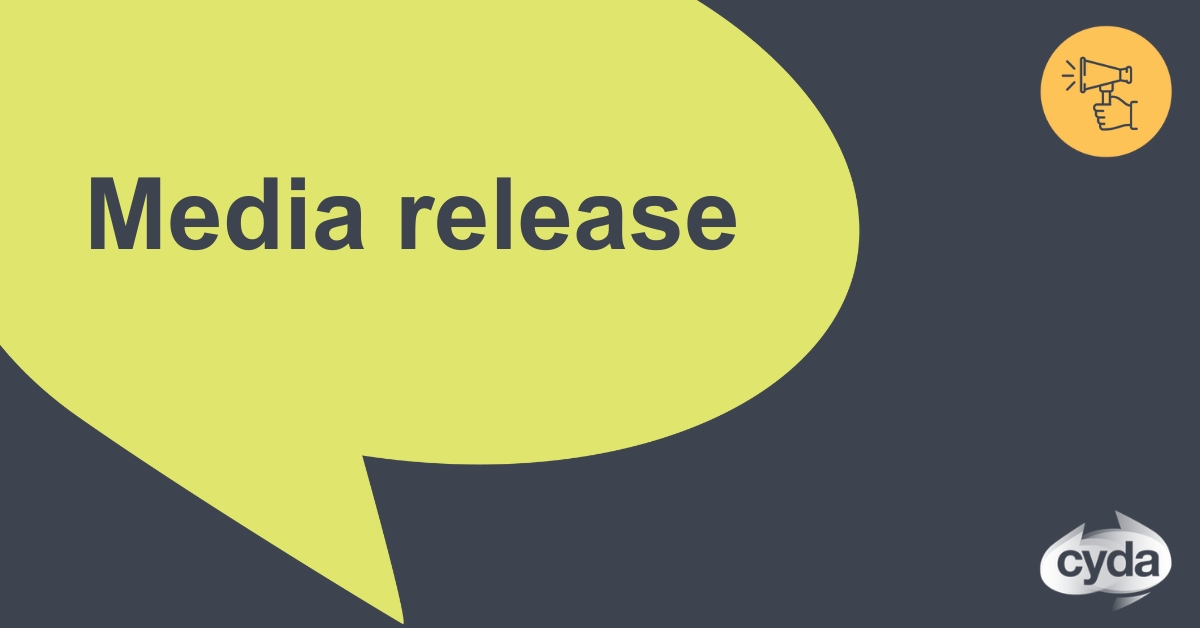Children and Young People with Disability Australia (CYDA) has welcomed the final report of the South Australian Royal Commission into Early Childhood Education and Care (ECEC), which recommends numerous reforms to expand and strengthen the early childhood sector across the state and make it more inclusive for children with disability.
CYDA’s CEO Skye Kakoschke-Moore said that it was encouraging to see The Royal Commission include children with disability in its recommendations for the early childhood education and care sector.
“The recommendations of the South Australian Royal Commission into Early Childhood Education and Care are an opportunity to not only improve early learning access for children with disability but also for the Commonwealth to lead on preschool funding.
“The current system and approach towards ECEC, especially for children with disability, is somewhat disconnected and complex. This complexity is confusing for families and caregivers to navigate and children risk falling between the gaps of a fragmented system.
“South Australia is leading the push for universal early childhood education and care to be the first step of an inclusive life for children with disability and this needs to be a national move.
“Children and young people with disability face intersecting discrimination and exclusion from the earliest ages.
“This spans the early childhood education and care, medical and health service sector, and the community, all while they are also going through a significant and once-in-a-lifetime developmental phase.
“We know discrimination and exclusion can have lifelong impacts if not addressed early. And as such it is vital that steps are taken to ensure that children with disability are supported in their early learning journeys.
“Hence, the detailed delivery of all recommendations, especially recommendation 42 which relates to partnering with the National Disability Insurance Agency, will be critical in supporting children with disability across currently siloed systems,” Ms Kakoschke-Moore said.
CYDA also notes that despite the attempts at producing inclusive recommendations for children with disability, the report used ableist terminology, stating that “disability … adds a layer of complexity and pressure that can disadvantage childhood development.”
Ms. Kakoschke-Moore said that framing a child’s disability as a disadvantage obscures the role of the actual problem – the ableist systems of beliefs, processes and practices that children with disability have no choice but to engage with, in order to live their lives.
“While the recommendations by The Commission are largely positive, CYDA is concerned about the use of ableist language in the report.
“We call on leaders to model an anti-ableist approach to avoid inadvertently perpetuating harmful ideas of disadvantage and disability, especially in the context of children.
“There is more work that is needed across early childhood development to disrupt the mechanisms of ableism, create long-term community attitude change, and promote understanding and respect for children and young people with disability,” she said.
Media contact:
Sonia Regan
0458 020 197
[email protected]
Additional resource:
Dickinson, H., Smith, C., Yates, S., Faulkner, A. (2022) Taking the first step in an inclusive life – experiences of Australian early childhood education and care. Report prepared for Children and Young People with Disability Australia (CYDA), Melbourne.
Full report including, PDF, Plain Text and a summary in Easy Read and Auslan.


